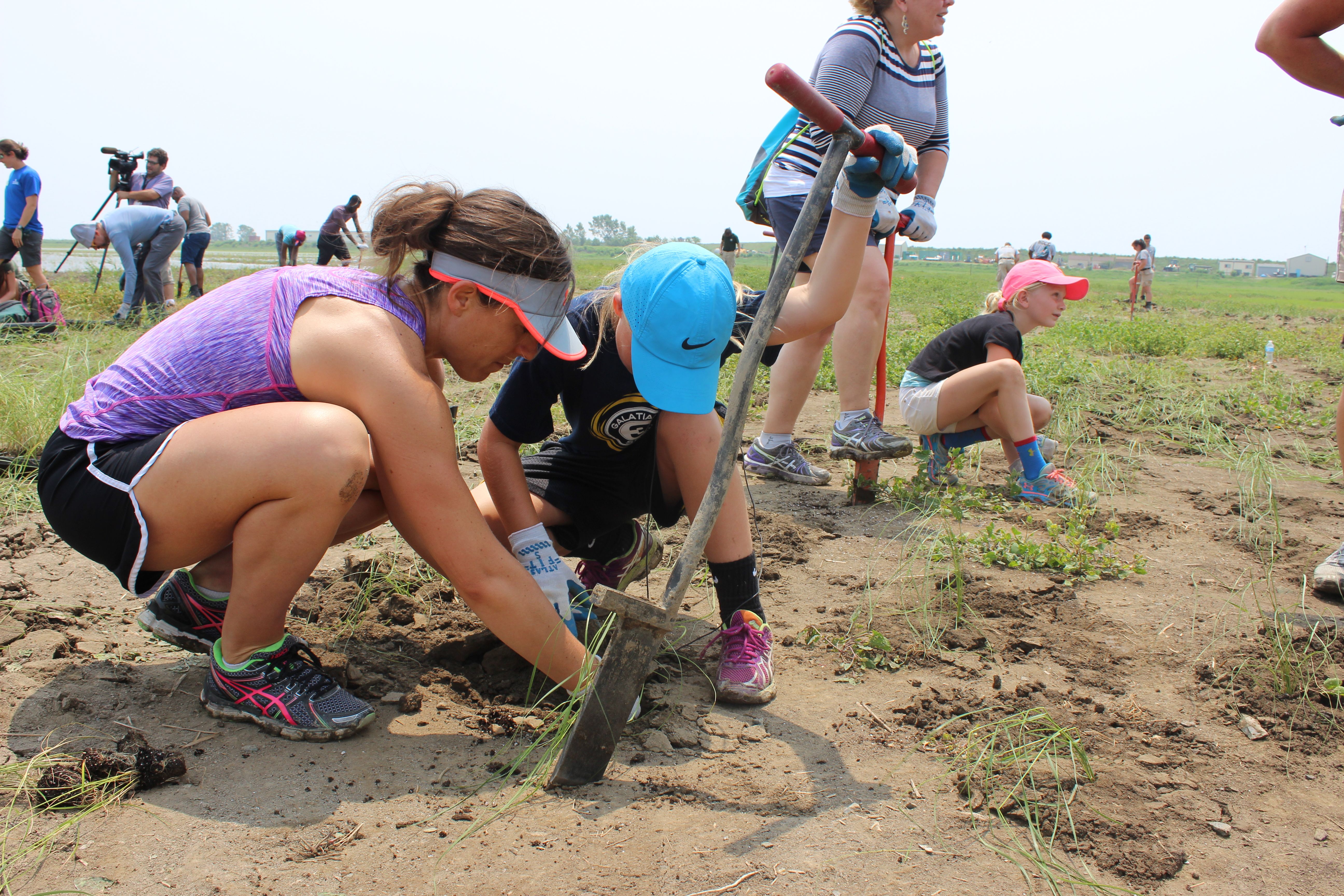


Celebrating World Environment Day, the Madras Regimental Centre and other units of the Wellington Cantonment joined forces with NGOs and local schools to undertake a re-wilding and ecological restoration program in Coonoor, India. The event, presided by Brigadier Sunil Kumar Yadav, focused on the theme of land restoration and drew attention to the need for combined efforts in protecting and reviving ecosystems. Participants planted appropriate native flora and expressed hope for future transformation of the region into a proper valley bog.
Land Restoration: A Collective Effort for Ecosystem Revival
Background
Land degradation is a pressing global issue, impacting over 2 billion hectares of land and affecting the livelihoods of millions. In response to this challenge, the United Nations Environment Programme (UNEP) declared 2021-2030 as the UN Decade on Ecosystem Restoration.
World Environment Day Celebration in Coonoor, India
To mark World Environment Day 2023, the Madras Regimental Centre, NGOs, and local schools in Wellington Cantonment, Coonoor, India, collaborated on a re-wilding and ecological restoration program. Brigadier Sunil Kumar Yadav presided over the event, highlighting the importance of land restoration and advocating for collective action in protecting and revitalizing ecosystems.
Event Details
The program involved planting native flora species appropriate to the Coonoor region. Participants expressed their optimism that the initiative would transform the area into a thriving valley bog ecosystem.
Top 5 FAQs
1. What is land restoration?
Land restoration refers to the process of restoring degraded or damaged land to its natural or original condition. It entails measures such as reforestation, revegetation, soil conservation, and habitat protection.
2. Why is land restoration crucial?
Land restoration plays a vital role in mitigating climate change, protecting biodiversity, enhancing water security, and ensuring sustainable food production.
3. What are the challenges associated with land restoration?
Land restoration can be complex and time-consuming, particularly in areas with severe degradation. Challenges include:
4. What can be done to support land restoration efforts?
Individuals and organizations can contribute to land restoration by:
5. What are some successful examples of land restoration?
Conclusion
The land restoration program in Coonoor is a testament to the power of collaboration in environmental protection. By joining forces and planting native flora, participants took a significant step towards restoring the ecosystem in that region. Through continued efforts and global cooperation, we can collectively address the challenges of land degradation and create a sustainable future for our planet.

As meditation gains popularity as a mental well-being tool, concerns about potential side effects have emerged. A recent study by a team of researchers from the University of Melbourne delved into the prevalence of adverse experiences among meditators in the United States. By recruiting nearly 900 adults from various meditation skill levels, the study aimed to provide more accurate estimates of how common these side effects are and what factors may contribute to experiencing them. The findings highlight the need for clearer reporting standards in future research on meditation.

Prime Minister Narendra Modi launched a groundbreaking research, development and innovation scheme that will provide a boost to the flourishing ecosystem of innovation in India. In his address at the Emerging Science, Technology and Innovation Conclave, PM Modi highlighted the crucial role of science and technology in driving transformation and emphasized on India's significant progress in the field. He also acknowledged the remarkable achievement of India's women's cricket team and expressed confidence that their success would inspire the country's youth. Attendees included renowned scientists, innovators, and distinguished guests from both India and abroad.

Indian Prime Minister Narendra Modi inaugurated the Emerging Science and Technology Innovation Conclave (ESTIC) 2025 and launched the Rs 1 lakh crore Research Development and Innovation (RDI) Scheme Fund. The scheme aims to strengthen the private sector-driven research and innovation ecosystem in the country and has a total outlay of Rs 1 lakh crore over 6 years. ESTIC 2025, gathering over 3,000 participants, focuses on 11 critical thematic areas including Artificial Intelligence, Quantum Science and Technology, and Space Technologies, providing opportunities for collaboration and reinforcing India’s science and technology ecosystem.

In this edition of Health360, a renewed debate over the alleged link between vaccines and autism is sparked by tech mogul Sridhar Vembu's endorsement of a questionable study. Despite reassurances from the medical community backed by data from the WHO, doubts continue to persist, leading to potential harm to public health. The program also delves into the alarming rise in back pain cases in India and explores new treatments.

In an effort to fight the ongoing air pollution crisis, Delhi conducted its first-ever official cloud seeding operation led by IIT Kanpur. The operation involved a small aircraft dispersing specially designed chemical flares into the atmosphere to create rain. While experts say rainfall could occur within 15 minutes to 4 hours, the actual timeframe depends on various factors such as wind direction and moisture content. If successful, the government plans to continue the operation in the coming days.

In the quest for stronger, luscious hair, we often overlook the importance of nurturing the roots. Fortunately, Ayurveda has long stressed the significance of this practice, which has now been backed by modern science. Studies have shown that herbs like Bhringraj and Amla can activate hair follicles, promoting new growth and delaying greying. Fenugreek, Neem, Hibiscus, and Ashwagandha are also found to be beneficial in strengthening and nourishing the scalp, resulting in thicker and healthier hair.

A college student shares her personal journey of becoming a vegetarian, despite facing challenges and health concerns. She then delves into an ethics class she took, where the concept of marginal cases were discussed. Following an article by philosophy professor Alastair Norcross, she concludes that even though individual action may seem insignificant, refusing to consume factory-farmed meat holds moral significance due to the potential to prevent immense suffering for animals.

On October 24, the global community commemorates World Polio Day to honor the legacy of Dr. Jonas Salk and the efforts of countless individuals and organizations in the fight against polio. This highly contagious and potentially deadly disease, once a widespread epidemic, is now largely preventable thanks to the development of a life-saving vaccine. India's successful eradication of polio serves as a testament to the importance of strong vaccination programs and collaborations in public health initiatives.

As winter arrives in India, so does the hazardous air pollution. Delhi NCR's AQI has already crossed the 400 mark, making it crucial to invest in air purifiers, especially after Diwali. Dyson, Qubo, HomePure, and Philips have launched high-quality air purifiers with advanced features to tackle different types of pollutants and create cleaner indoor air. With prices ranging from Rs 5,000 to Rs 1 lakh, these purifiers are a practical and timely purchase for a healthier living.

In a recent family vlog, Indian celebrity couple Shoaib Ibrahim and Dipika Kakar shared their "natural" hair care routine for their son, using a homemade mask made with rice flour, flax seeds, and coconut oil. However, experts warn that what works for adults may not be suitable for babies, whose sensitive skin and scalp could react to the ingredients. While the ingredients may improve hair texture, they do not necessarily promote hair growth. Instead, a healthy diet and good scalp care are more important in maintaining healthy hair.